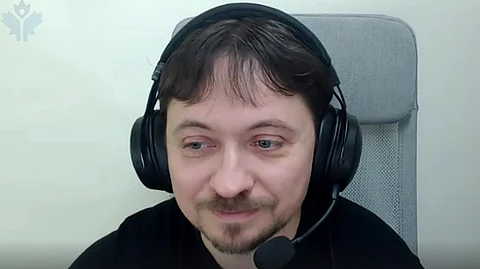

A digital designer who immigrated to Canada and lost primary custody of his children says the family law system is “broken."
Vitali Charapovich gave his testimony to the National Citizens Inquiry (NCI) on March 7 in Edmonton. The original purpose of the NCI was to acquire testimony and evidence on COVID-19-related issues, but this session of hearings addresses the question, “Are children in Canada safe?”
Charapovich is alienated from his 14-year-old son and 9-year-old daughter and blames his ex-wife and the family court system for it. The couple were married in Belarus and their children were born there, but came to Nova Scotia in 2017.
The couple split in 2019 and spent the next three years with shared custody, alternating weeks where the children were with them. The couple divorced in Belarus, the same country in which they were married. Charapovich remarried and the couple returned to court regarding custody and child support issues.
In a strange twist, the judge refused to acknowledge the validity of the divorce in Belarus but did acknowledge Charapovich’s new marriage.
“What it means, in simple terms, the judge made me married to two different women in two countries,” Charapovich told the NCI.
A second hearing went worse for Charapovich. Despite three years of shared parenting, a female judge gave primary custody of the children to Charapovich’s ex-wife.
“I lost the custody because my ex claimed that the children suffered at my home,” he said.
What was meant to be an interim order lasted three years. Charapovich did his best to remain present in their lives.
“I called them every day. I sent them presents. I communicated with the school and so on, whatever I could do. And it lasted for about six months until my ex-wife completely cut me off the children.” According to Charapovich, this happened in November of 2023.
“The most terrible, horrifying things that she has done to the children is that she told them that I abandoned them and I want to kill them to avoid paying child support,” he said.
When he talked to his children last Christmas, his son said he would like to see him.
“When I asked him, is there something I can do for him? He said, ‘Yes, throw yourself off of the building.’ And my daughter, she, in front of my ex, told me that I'm their enemy, and she refused to talk to me and spend time with me.”
Charapovich tried the appeal courts but was refused, despite audio evidence of his wife’s parental alienation and affidavits by five experts who affirmed it fit the definition.
“What the judge said when I tried to present it as evidence, the judge said that the evidence can be harmful to the children and to the justice,” Charapovich recalled. “They did not interview the children because my ex did not allow it to happen.”
Charapovich had income ranging from $30,000 to $60,000 per year doing freelance work, but, based on assets, a female judge imputed his income to be $100,000 annually. He was saddled with $1,400 per month child support payments that eventually exhausted his savings.
“I found a job, full-time income, and they took my own earnings from me, leaving me $123 for the whole month just to live on,” he said. “In just a few months. I had no money, I had no savings, no basic income, no investments, and therefore I had to find a sustainable way of living.”
After falling behind in payments, Charapovich was stripped of his Canadian passport and driver’s licence. He moved abroad for work using his Belarussian passport.
Charapovich said shared custody should be the default arrangement for parents who split, as is the case in many countries. He said half of parents who suffer alienation have thoughts of suicide and 23% make an attempt.
“Parental alienation doesn't happen on its own. It is supported by the family court system,” Charapovich said.
“The father and the mother are equally important in the life of every child. But what…the family court is doing now, they are choosing one side, in most cases, mothers, and eliminate the other side. And many psychologists compare it with amputating a limb,” he added.
Charapovich said he has talked to many men with similar stories and said the system favours combative parents and seems to be “an intentional destruction of families.”
“This is not positive, this is terrifying, because I don't fully understand why would Canadians have such a court system that harms society, that is anti-social,” he said. “Men across Canada are being jailed because they cannot comply with court orders…that are impossible to fulfill.”
